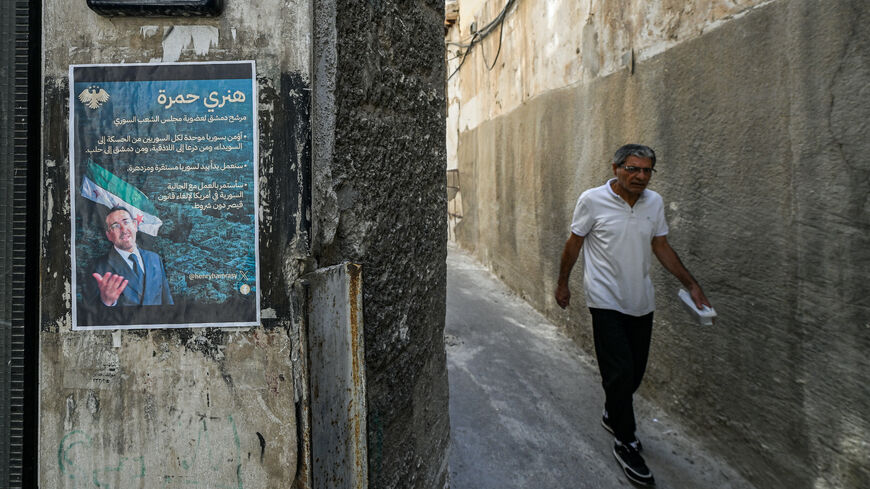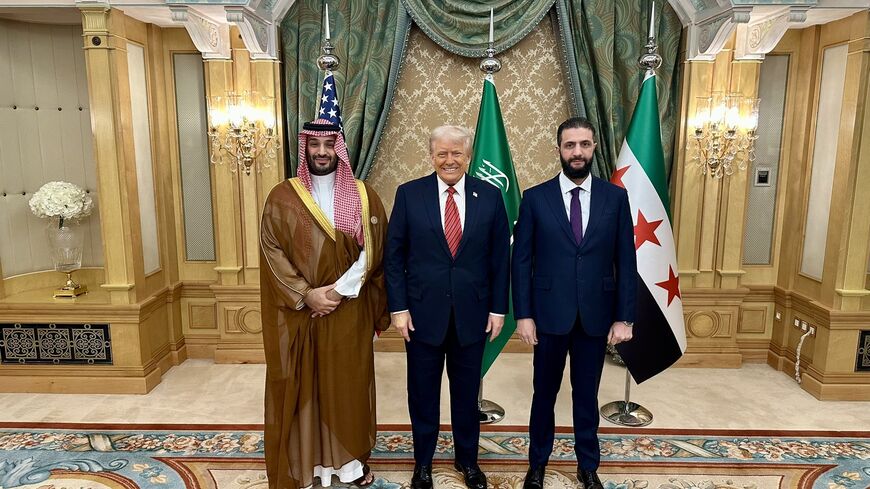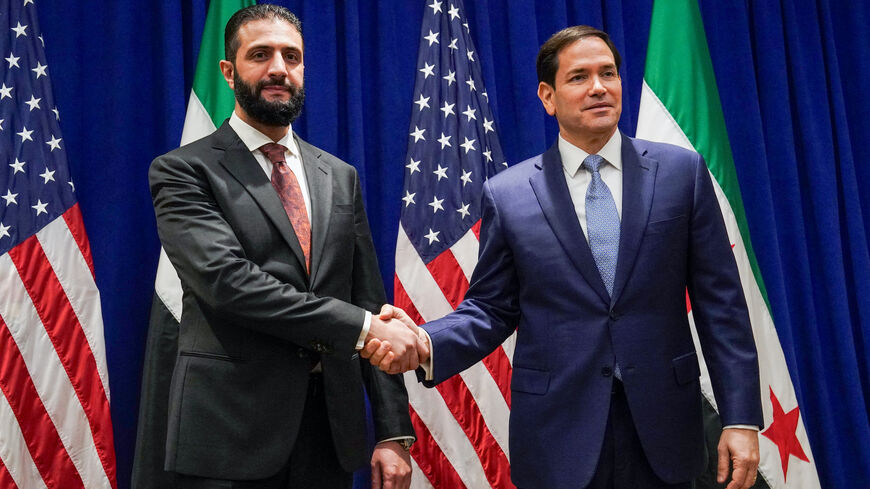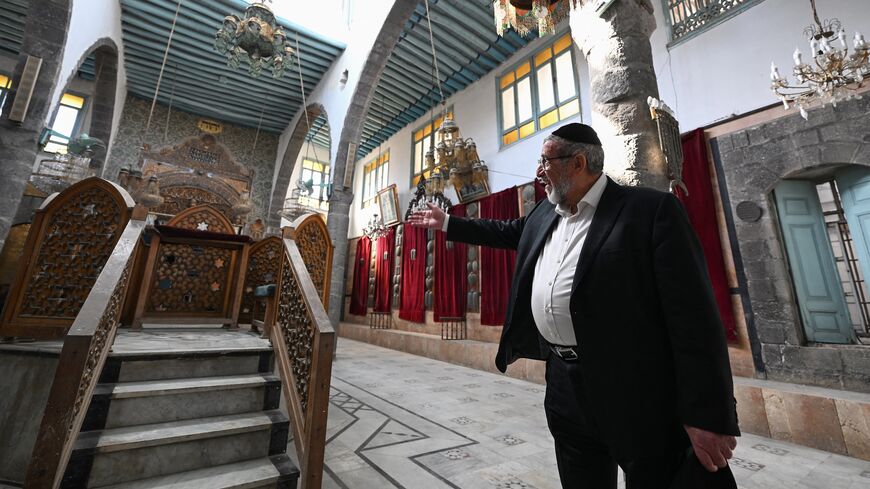Sharaa’s New York blitz: Syria seeks economic revival in first UN visit in 58 years
Syrian President Ahmed al-Sharaa is in New York on a landmark visit during which he will address the UN General Assembly as he seeks to break Syria’s isolation.
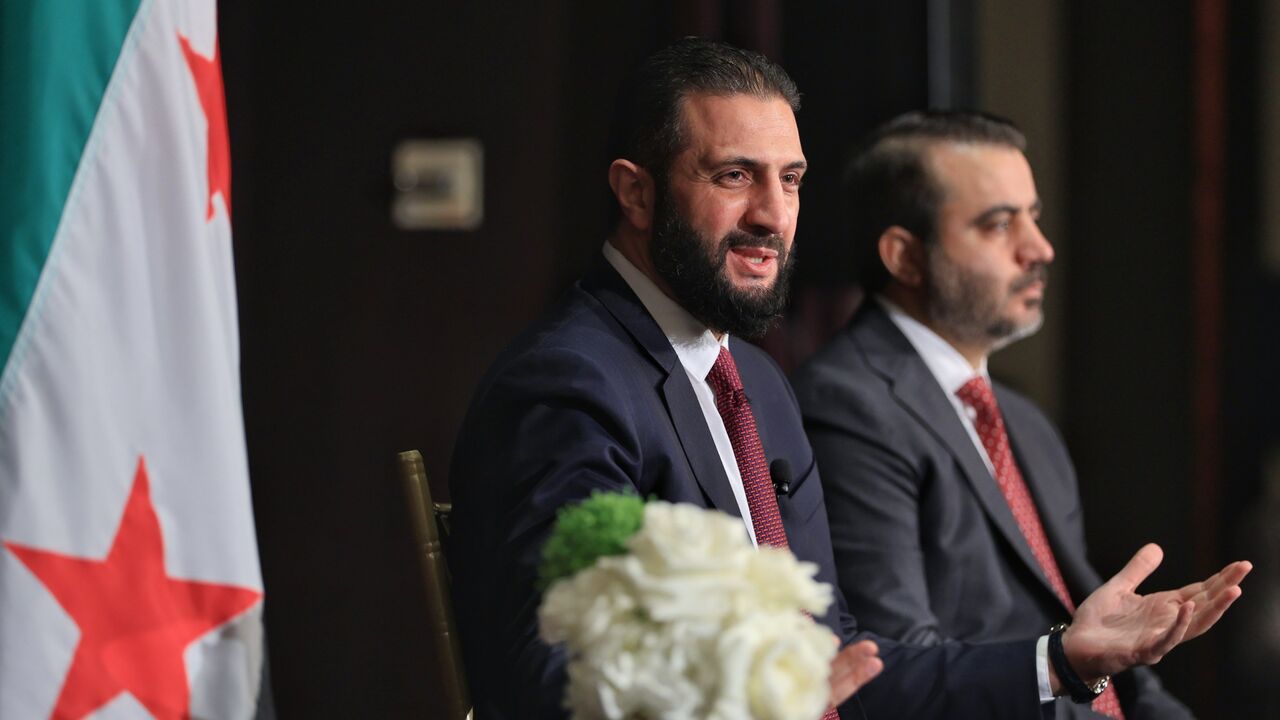
Syrian President Ahmed al-Sharaa arrived in New York City on Sunday to take part in the United Nations General Assembly summit this week, the first participation by a Syrian leader in nearly six decades, marking a major diplomatic milestone for Damascus as it rebuilds ties with Arab and Western powers after decades of isolation under the rule of the Assad family.
What’s on the agenda
Sharaa’s landmark trip to the US comes less than a year after he led a rebel offensive that toppled President Bashar al-Assad on Dec. 6, 2024, and assumed office in January.
Upon his arrival in New York City, Sharaa and Foreign Minister Asaad al-Shibani sat down with members of the US Syrian community at the Mandarin Oriental Hotel.
Sharaa addressed the Syrian-Americans, praising their role in conveying “the true image of the Syrian Arab Republic” and expressing his gratitude for “their sincere efforts in serving their country,” according to a statement released by the Syrian presidency on Sunday evening.
Among the participants were 11 Jewish Syrians, according to Israeli media. Syrian-born Jewish businessman Joe Jajati told Ynet that one of the Jewish Syrians stood up in the crowd and announced a $100,000 donation to support Syria’s reconstruction efforts. Social media users identified the donor as Rabbi Yusuf Hamra, a Syrian Jew from Damascus.
The Syrian American community gave his Excellency Sayyid Ahmed Al-Shara an electric welcoming in New York city! 💚 💚 💚 💚
We truly love ♥️ him with all our hearts 💕! pic.twitter.com/0s5oLHnNPJ— SRD (@SyriaRetold) September 22, 2025
Before Israel’s creation in 1948, roughly 300,000 Jews lived in Syria, according to the World Jewish Congress. Over decades, rising anti-Israeli sentiment, antisemitism and restrictions under President Hafez al-Assad prompted most to leave. By the 1990s, the community had largely vanished, with only nine Jews — mostly elderly — believed to remain in Syria today.
Meanwhile, Israel and Syria’s new authorities are in talks to reach a security deal that Damascus hopes will secure a halt to Israeli airstrikes and the withdrawal of Israeli troops from south Syria.
Later on Monday, Sharaa participated in a Concordia Summit symposium on democracy and security, moderated by David Petraeus, the former CIA director and US regional commander.
On Tuesday evening, Sharaa is set to attend an event organized by the Middle East Institute, the think tank announced last week. He will hold a conversation with Charles Lister, the director of MEI’s Syria Initiative.
The Syrian leader is also expected to hold meetings with Arab and Western officials on the sidelines of the UNGA, including a Monday afternoon meeting with Secretary of State Marco Rubio.
In an interview with CBS News aired on Sunday, Sharaa praised Trump’s move to lift sanctions in what he described as “a quick, courageous and historic decision.”
“He recognized that Syria should be safe, stable and unified. This is in the greatest interest for all countries of the world, not just Syria,” he told CBS’ Margaret Brennan.
He added, “We need to discuss a great many issues and mutual interests between Syria and the USA. We must restore relations in a good and direct way.”
Sharaa also called on the international community to lift all remaining sanctions on Syria. “I believe the world must not be complicit again in the killing of the Syrian people by slowing down or preventing the lifting of sanctions and preventing them from reconstructing their nation.”
The highlight of his trip will be his address at the UNGA on Wednesday, when he is expected to outline Damascus’ vision for ending Syria’s isolation and further sanctions relief to revive the country’s economy. It has been battered by more than a decade of US and Western sanctions imposed in response to widespread human rights abuses during the 14-year civil war under the Assad family's rule.
The last visit by a Syrian president to the US dates back to June 1967, when then President Nur al-Din al-Atassi delivered a speech at a special session of the UNGA, a couple of years before Hafez al-Assad assumed power in 1971.
Syria’s economic, domestic revival
Sharaa’s visit to the US and upcoming participation at the UNGA summit mark a major turning point in US-Syrian relations.
Sharaa led the Islamist Hayat Tahrir al-Sham group — which broke ties with al-Qaeda in 2015 — under his nom de guerre, Abu Mohammed al-Golani. The US had placed a $10 million bounty on his head and designated him as a terrorist in 2013.
But US policy on Syria has undergone a massive shift since the fall of the Assad regime. Washington dropped the reward for Sharaa’s arrest in mid-May, while Trump announced that month that he would remove all US sanctions on Syria.
Days later, he met with Sharaa in Riyadh. In comments to reporters, Trump praised Sharaa as a “young, attractive guy. Tough guy. Strong past. Very strong past. Fighter.”
The US government effectively terminated its US sanctions program on Syria on July 1 in a move that is expected to ease the country’s economic isolation.
The Syrian Central Bank said on Sunday it signed a memorandum of understanding with Mastercard to introduce new electronic payment systems to the Syrian market in another step toward reintegrating the Syrian economy into the global financial system.
The deal, which includes developing payment infrastructure, issuing local and international cards and connecting Syrian banks to global payment networks, came during a visit by Adam Jones, Mastercard's executive vice president and head of the Western Arab Region Division.
Along with Visa, another global banking card issuer, Mastercard had stopped all operations and credit card transactions in Syria in line with the Treasury Department’s financial sanctions against Syria in August 2011.
The sanctions relief comes as the new Syrian authorities seek to rebuild state institutions. Syria is set to hold its first parliamentary elections since the fall of Assad on Oct. 5.
The Syrian Higher Committee for People’s Assembly Elections announced the upcoming vote “across all electoral districts” on Sunday, explaining that regional electoral committees made up of local representatives will select 140 of the 210 parliamentary seats. The remaining 70 seats will be appointed by Sharaa directly.
The elections were initially set for September, but polling was delayed in the Druze-majority province of Suwayda and in parts of Raqqa and Hasakah under Kurdish control amid ongoing tensions.

